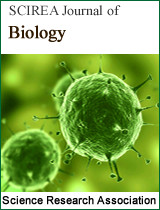Investigation of the combination of neem seed oid and rotenone extract on the inhibition of Plutella xylostella on Brassica juncea
DOI: 10.54647/biology180286 92 Downloads 197423 Views
Author(s)
Abstract
The chemical pesticides being used today have adverse effects on human health and the environment. So ,they are strictly controlled, especially for export agricultural products. Since then, the search for pesticides derived from natural plants to replace chemical drugs on the market have extensively done. In this study, the combination of neem seed oil and rotenone extract on the inhibition of Plutella xylostella on Brassica juncea was investigated. The results showed that the combination of neem seed oid and rotenone extract has a significantly high insecticidal effect in vitro condition, the effectiveness of which is proportional to the treatment concentration, the 70% inhibitory concentration of Plutella xylostella was LC70 = 0.0130 %. In green house model , it was found that after the first treatment, the efficiency of Plutella xylostella control reached 38.31% and on the 7th day after the second treatment, the insecticide efficiency reached 84.81%. These results showed the high potential application of the combination of neem seed oid and rotenone extract onvegetable cultivation to limit the use of chemical drugs, as well as the current situation of resistant pests.
Keywords
azadirachtin, combination, rotenone, Plutella xylostella L., pesticides
Cite this paper
Nguyen, Luong Hieu Hoa, Ngo, Thi Phuong Dung, Le, Quynh Loan, Nguyen, Hoang Dung,
Investigation of the combination of neem seed oid and rotenone extract on the inhibition of Plutella xylostella on Brassica juncea
, SCIREA Journal of Biology.
Volume 8, Issue 2, April 2023 | PP. 78-87.
10.54647/biology180286
References
| [ 1 ] | Asogwa, E. U., Ndubuaku, T. C. N., Ugwu, J. A., & Awe, O. O. (2010). Prospects of botanical pesticides from neem, Azadirachta indica for routine protection of cocoa farms against the brown cocoa mirid–Sahlbergella singularis in Nigeria. Journal of Medicinal Plants Research, 4(1), 1-6. |
| [ 2 ] | Satti, A. A., Ellaithy, M. E., & Mohamed, A. E. (2010). Insecticidal activities of neem (Azadirachta indica A. Juss) seeds under laboratory and field conditions as affected by different storage durations. J. Agric. Biol, 1, 1001-1008. |
| [ 3 ] | Mhazo, M. L., Mhazo, N., & Masarirambi, M. T. (2011). The Effectiveness of Home Made Organic Pesticides Derived from Wild Plants (Solanum pindiriforme and Lippia javanica), Garlic (Allium sativum) and Tobacco (Nicotiana tobacum) on Aphid (Brevicoryne brassica) Mortality on Rape (Brassica napus) Plants. Research Journal of Environmental and Earth Sciences, 3(5), 457-462. |
| [ 4 ] | Ujváry, I. (2010). Pest control agents from natural products. In Hayes' Handbook of Pesticide Toxicology (pp. 119-229). Academic Press. |
| [ 5 ] | Nagai K (1902). Reseraches on the poisonous principals of Rhoten I. J Tokyo Chem Soc, 23, 744-777. |
| [ 6 ] | La Forge, F. B., Haller, H. L., & Smith, L. E. (1933). The Determination of the Structure of Rotenone. Chemical Reviews, 12(2), 181-213. |
| [ 7 ] | Li, N., Ragheb, K., Lawler, G., Sturgis, J., Rajwa, B., Melendez, J. A., & Robinson, J. P. (2003). Mitochondrial complex I inhibitor rotenone induces apoptosis through enhancing mitochondrial reactive oxygen species production. Journal of Biological Chemistry, 278(10), 8516-8525. |

